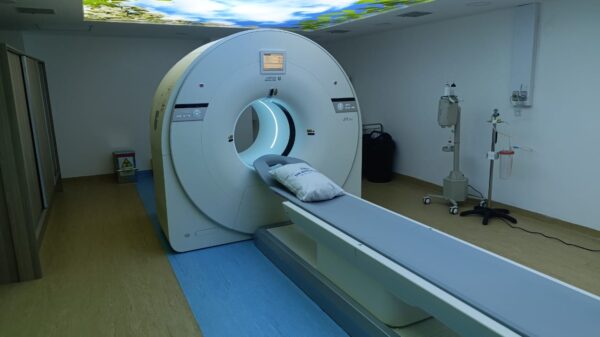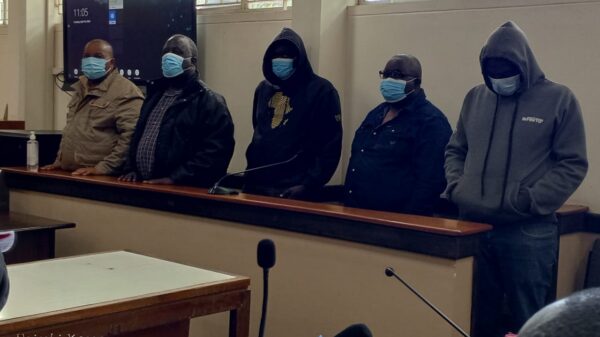NAIROBI, Kenya, Jan 22 – While the development and approval of safe and effective vaccines less than a year after the emergence of COVID-19 is a stunning achievement, Africa is in danger of being left behind as countries in other regions strike bilateral deals, driving up prices.
As of early this week, 40 million COVID-19 vaccine doses have been administered in 50 mostly high-income countries. However, in Africa, Guinea is the sole low-income nation to provide vaccines and to date, these have only been administered to 25 people. Seychelles, which is a high-income country, is the only one on the continent to start a national vaccination campaign.
“We first, not me first, is the only way to end the pandemic. Vaccine hoarding will only prolong the ordeal and delay Africa’s recovery. It is deeply unjust that the most vulnerable Africans are forced to wait for vaccines while lower-risk groups in rich countries are made safe,” said Dr Matshidiso Moeti, the World Health Organization (WHO) Regional Director for Africa. “Health workers and vulnerable people in Africa need urgent access to safe and effective COVID-19 vaccines.”
The COVAX Facility – which is co-led by the Coalition for Epidemic Preparedness Innovations (CEPI), Gavi, the Vaccine Alliance, and WHO – has secured 2 billion doses of vaccine from five producers, with options for over 1 billion more doses.
“COVAX is on track to start delivering vaccine doses and begin ensuring global access to vaccines”, said Thabani Maphosa, Managing Director, Country Programmes, GAVI. “This massive international undertaking has been made possible thanks to donations, work towards dose-sharing deals and deals with manufacturers that have brought us to almost 2 billion doses secured. We look forward to rollout in the coming weeks.”
In Africa, the coalition has committed to vaccinating at least 20 percent of the population by the end of 2021 by providing a maximum of 600 million doses based on two doses per individual disbursed in phases.
An initial 30 million doses are expected to start arriving in countries by March with the aim of covering 3 percent of the general population, prioritizing mainly healthcare workers and other priority groups and then expanding to cover additional vulnerable groups, such as the elderly and those with pre-existing conditions.
Most of the doses are expected to arrive in the second half of the year. These timelines and quantities could change if candidate vaccines fail to meet regulatory approval or production, delivery and funding face challenges.
To make sure that vaccines are transported and stored adequately to remain effective, WHO, Gavi, UNICEF and other partners are working with countries to support their readiness to receive vaccines by mapping existing cold chain equipment and storage capacity as well as providing technical support for countries to be ready to receive and manage the vaccines.
According to the WHO vaccine introduction readiness assessment tool, African nations are on average 42 per cent ready for their mass-vaccination campaigns, which is an improvement on the starting point of 33 percent two months ago. However, there is still a long way to go to reach the desired benchmark of 80 percent.
As the largest vaccine buyer in the world, procuring more than 2 billion doses annually for routine immunization and outbreak response on behalf of nearly 100 countries, UNICEF is coordinating and supporting the procurement, international freight and delivery of COVID-19 vaccines for the COVAX Facility. This is the biggest, most sophisticated ground operation in the history of immunization. UNICEF is stockpiling one billion syringes and buying 10 million safety boxes so that used syringes and needles can be disposed in a safe manner by personnel at health facilities, thus preventing the risk of injuries and blood borne diseases.
“UNICEF has put in place a global network of freight forwarders and logistics providers to deliver vaccines as quickly and safely as possible as part of this historic and mammoth operation,” said Mohamed Fall, UNICEF Eastern and Southern Africa Regional Director. “This invaluable collaboration will ensure that we have enough transport capacity in place for delivering COVID-19 vaccine doses, syringes and safety boxes to the front-line workers who ultimately protect the millions of children who depend on their vital services.”
All the 54 countries on the continent have expressed interest in the COVAX Facility. Eight higher and middle-income countries will self-finance their own participation, while lower-middle-income and low-income countries will access the vaccines at no cost through the Facility. The vaccines distributed by COVAX will have received WHO Emergency Use Listing authorization and as such will have undergone stringent validation of their safety and effectiveness. However, vaccine nationalism is threatening the COVAX initiative.
The COVAX initiative has raised US $6 billion in pledges but needs an additional US $2.8 billion in 2021 and WHO and partners are urging countries and donors to contribute and help end the pandemic globally.












































